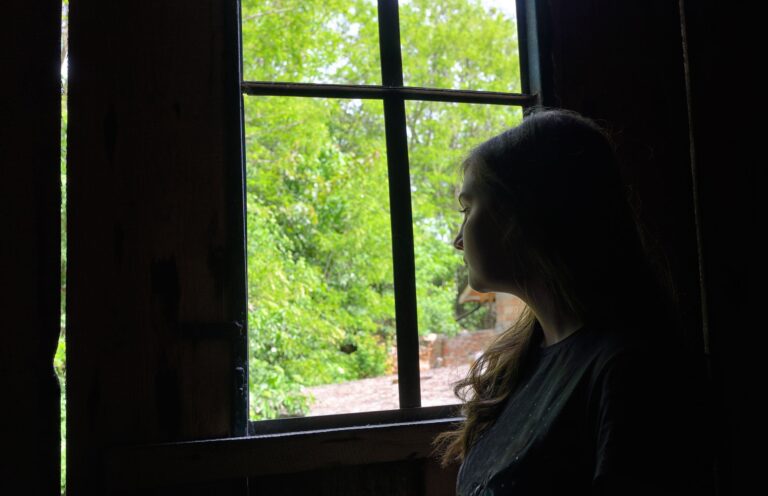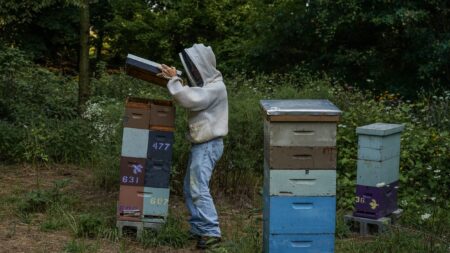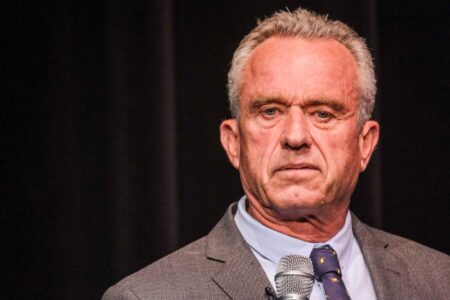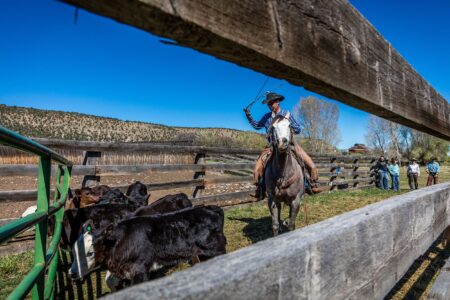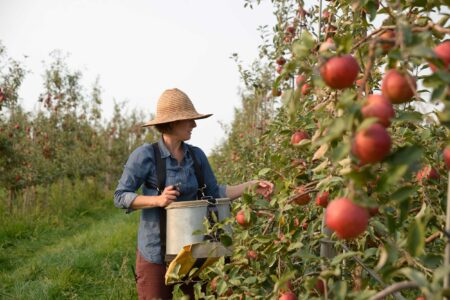If you grew up in a rural community, you know the rhythms of farm life — the early mornings, families working long days, and the pride that comes from hard work. But behind those barn doors, many of our young people are struggling in silence. Suicide rates among rural youth are nearly 74 percent higher than those in urban areas, according to the Rural Health Information Hub. These rates are growing at a faster pace than in urban areas.
We owe it to our youth to do better.
Yet more than half of agricultural youth directors — such as Extension staff, 4-H leaders, and ag teachers — rarely discuss mental health issues such as depression and suicidal thoughts, according to a University of Illinois Urbana-Champaign study in the Journal of Agricultural Safety and Health.
Why does mental health matter in agriculture?
- 60 percent to 65 percent of rural youth meet the criteria for depression but are less likely to access mental health services (National Institute of Health).
- The rate of loneliness among young adults has increased every year between 1976 and 2019, reports the U.S. Surgeon General in 2023’s Our Epidemic of Loneliness and Isolation.
- The “pull yourself up by the bootstraps” culture of farming teaches our youth “keep it to yourself if something is bothering you.” These don’t support mental wellness and can lead to long-term problems.
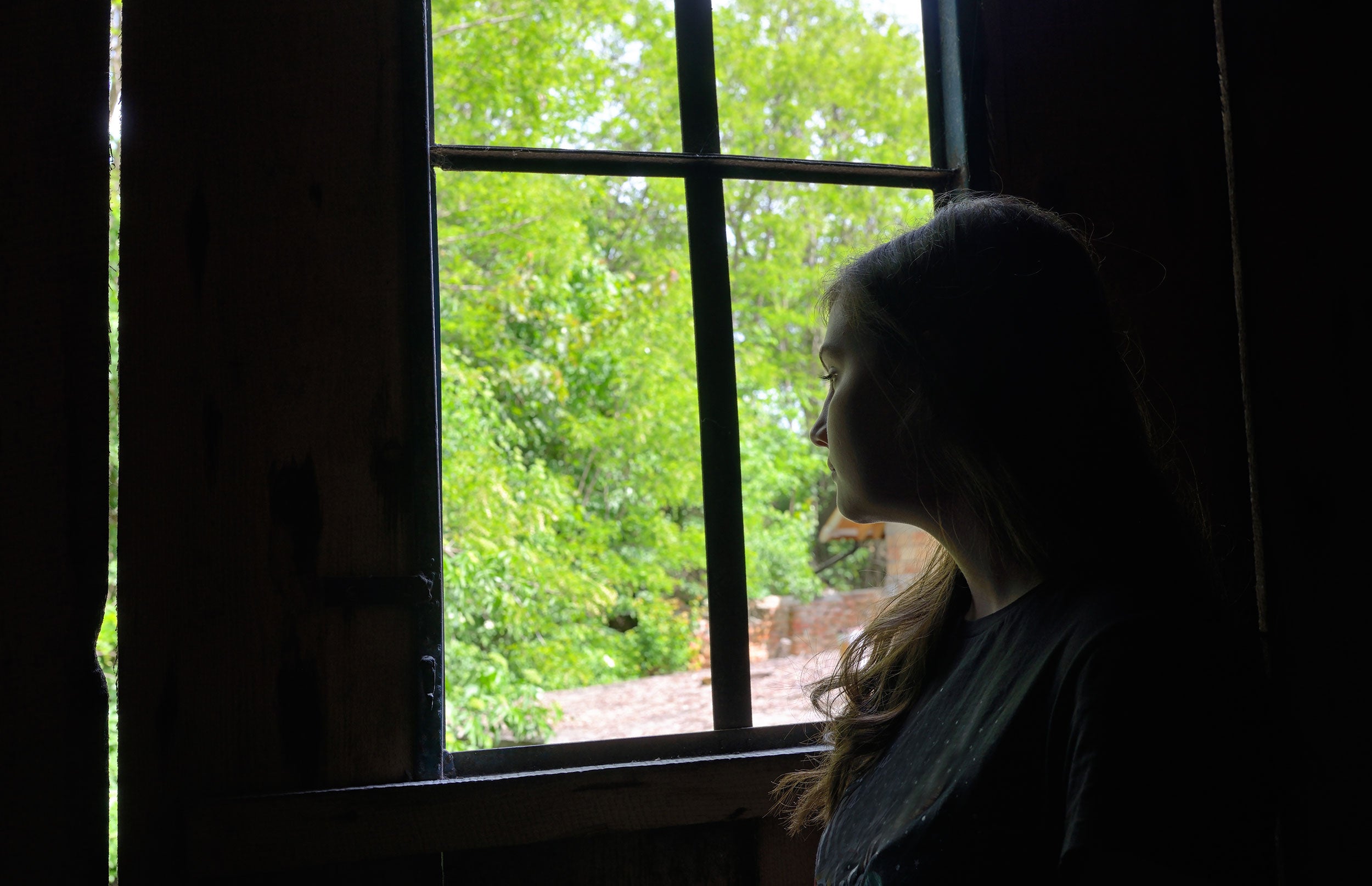
As a parent, 4-H leader, and community volunteer, I find these facts deeply disturbing. How can we improve the next generation’s ability to manage stress and their mental wellness? If this were something like dairy cattle, we’d start by assessing environment and genetics. But the truth is that there’s probably been more research done on cow comfort than there has been on the mental wellness of rural communities.
Health inequities, isolation, and technology contribute
Twenty percent of the American population lives in rural areas, but there’s a health equity issue — we rural folk don’t have equitable access to services — for both mental and physical health. It’s a struggle when farm people need a therapist, doctor, or counselor who understands their lifestyle and the farming mindset.
The lack of access leaves young people particularly vulnerable because isolation runs deeper in rural areas, where youth face both geographic and social isolation. The use of technology can deepen that divide, making it harder for kids to develop conversation skills, express themselves, and build relationships. When you add in the challenges of online schooling, the opportunities for face-to-face interaction shrink even further.
Smartphones became a fixture in teens’ lives about a decade ago. While phones promised connection, the reality has often been more isolation. Instead of gathering after school, many young people now retreat into the 2D world of social media and video games. This is especially pronounced for kids already struggling — technology can become both a hiding place and a barrier to real-life connection.
Monica Kramer McConkey, a Licensed Professional Counselor with a farm background in Minnesota, has seen this firsthand while counseling rural youth.
“Kids with mental health issues would tend to drive to isolation — it is super pronounced when they can hide in their social media and gaming world. Online school has decreased the need for human interaction,” she said.


She also notes that youth in small towns have a “feeling of stuckness” — they don’t see a way out or an opportunity to achieve.
Even more alarming is the “suck it up buttercup” mindset we proudly adhere to in agriculture. If a family member has a broken arm, it makes sense to have it diagnosed, set, and casted. If a loved one has a mental health condition, it makes equally as much sense to have it diagnosed and treated — even if you can’t see it or believe that depression/anxiety is an illness.
You may think “those kids” just need to toughen up, but the science you rely on to make business decisions speaks loudly about human mental well-being. Science clearly shows that treatment of mental health condition can be short-term, help the brain overcome challenges, and move a person to a healthier, more productive place. Depression, anxiety, medication, and therapy do not mean you should classify someone as a wimp!
Your ability to manage stress is passed on
It’s also proven that epigenetics can change the way future generations handle stress. Just as livestock are bred for temperament and adaptation to different environments, your genetics and how you handle stress are passed on to future generations. In other words, your refusal to address mental wellness may be the reason your children and grandchildren aren’t equipped to handle the stress of agriculture.
Personally, epigenetic changes are my single greatest motivator to employ stress management tools.
Beyond the motivation of positively influencing future generations’ genetics, remember the example you set in managing stress speaks louder than words. Covered in my past articles (like here and here and here), these are essential tips to proactively protecting your mental well-being and model stress management for youth, your family, and employees.
- How’s your intentional exercise — are you hitting a minimum of 20 minutes 3x/week?
- Is your nutrition balanced?
- Are you getting enough sleep? Your brain doesn’t work with just a few hours.
- Are you practicing “herd mentality” and maintaining social connections?
- Will you take a break to regain perspective? This is particularly helpful in times of high stress or conflict. Do you have any hobbies or interests away from the farm or business?


Besides learning from your example, know that young ears hear everything said during family meals — and absorb parental stress.
Adults in agriculture experience high stress levels around personal finances, economic conditions, weather, the health of their land/animals, and interpersonal relationships. Economics influence parents’ mental health, their relationships, and how they parent according to Dr. Josie Rudolphi with the University of Illinois Urbana-Champaign and director of the North Central Farm and Ranch Stress Assistance Center.
“Parents with more financial stress have more depression and anxiety, and their children do, as well. There are 2 million adolescents living and working on farms. They are not immune to the stress.” You can learn more from her paper about stress, mental health, and risk taking in agricultural youth at this link.
Therapy and medication can help
Sarah Thomas, a former North Carolina State FFA Officer and recent Virginia Tech dairy judging standout now at Select Sires, shares her mental health journey. “Back in May, I was late getting some study material to my Holstein convention youth and one of them reached out about it, to which I responded, ‘I’m sorry. I’ve just been overwhelmed and have a lot on my plate. I’ll get this to you ASAP.’ Her response was, ‘You need to take care of yourself first.’ It made me tear up!”
Thomas went on to say, “We do have to take care of ourselves first, but we also don’t want to be perceived as needy, helpless, or annoying. I am just trying to approach these youth with a sense that I care about them as an individual and only want to see good things happen for them. Of course, I will always promote therapy, but I recognize the backlash that comes with that. Maybe we need to dig deeper into why we as a society feel so against it? I think of therapy this way: It’s like a filing cabinet of our life and the sessions are about going through those ‘folders’ and tidying them up some.”


She pointed to the same issue with medication.
“I also realize the stigma behind medication,” Thomas said. “My first antidepressant was Zoloft in spring 2017. Before I started, I was so ticked off at the world, had intrusive thoughts about my self-worth, and was mean to people I loved because I wanted to make them feel the same pain I was feeling. In just a few weeks after starting Zoloft, I felt a little more positive ‘umph’ in my step. I wasn’t so angry anymore and I was allowed to enjoy the things I do just a little bit more. Of course, there isn’t a one size fits all for medication and we have to ‘shop’ around sometimes, but it’s because we’re all different — especially in terms of body chemistry.”
How can you be a part of the solution?
I hope to encourage you to be part of the solution for rural youth mental health challenges by understanding the problem, some of the causes, and how to start with the person you see in the mirror.
We all need to work harder to help the next generation in agriculture be healthier — my next column will provide ideas and resources. How can you help solve this heartbreaking problem?
Michele Payn speaks and writes to help the people of agriculture have tough conversations about managing stress, connecting with consumers, and making sense of science. Learn more about her stress management journal at causematters.com or follow @mpaynspeaker on social media.


:max_bytes(150000):strip_icc()/Diseaseplaybookksouthernrust-b5873b78fd1949cab74ab000f2db061b.jpg)
:max_bytes(150000):strip_icc()/Updated3BigThings-1-farm-summer-orange-4-5f51fb49682f48eebede00ee3975bc98.jpeg)
:max_bytes(150000):strip_icc()/AgWithEmma-field-a59dd5afe12b4a788621b34d88eab213.jpg)


